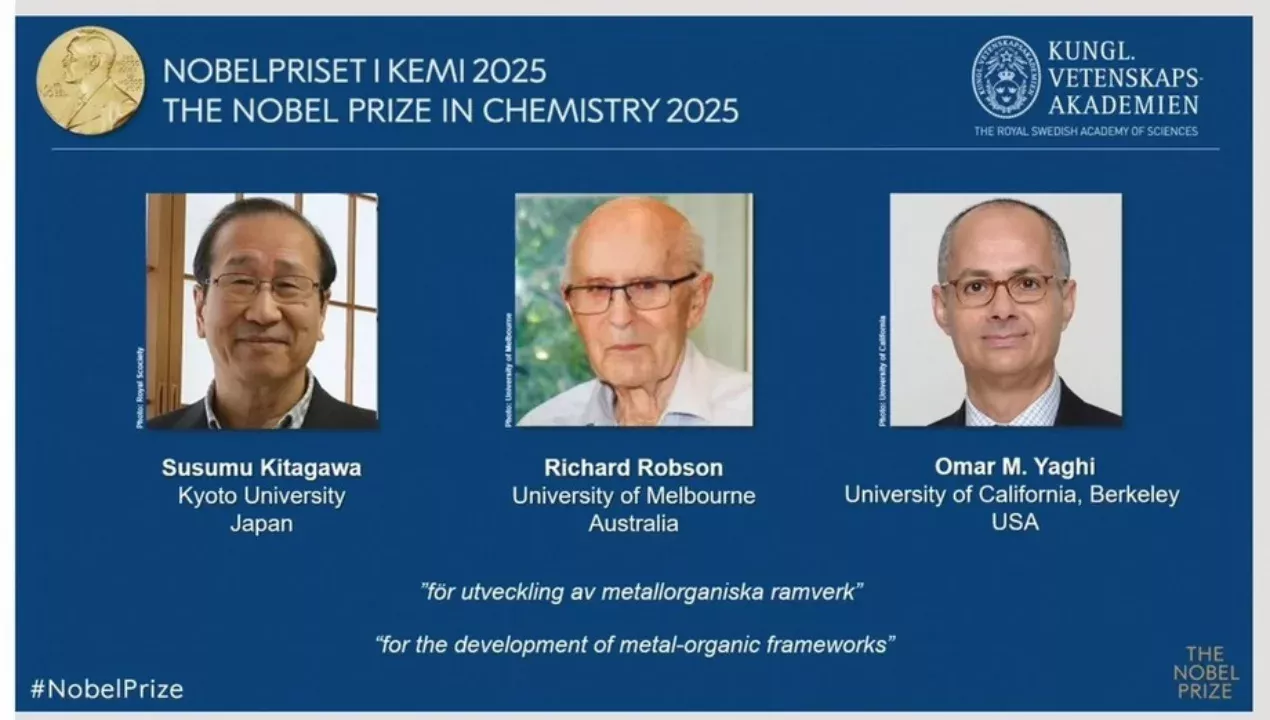Nobel Prize in Chemistry awarded for MOF discovery

The 2025 Nobel Prize in Chemistry was awarded to Susumu Kitagawa, Richard Robson, and Omar Yaghi. This was reported by Zamin.uz.
They created a new generation of materials—metal-organic frameworks (MOFs)—which play a significant role in solving global problems. This discovery bridges science and practice, enabling improvements in quality of life.
MOFs are porous structures composed of metal ions and organic linkers, containing numerous cavities inside. They act like molecular-level "sponges," allowing gases or other chemical particles to pass through, be selectively captured, or stored within these cavities.
These properties enable MOFs to be applied in various fields. The main applications of MOFs include creating drinking water sources by collecting moisture from air in desert and saline regions, preventing climate change by capturing carbon dioxide from the atmosphere, ensuring industrial and environmental safety by securely storing toxic gases, and developing affordable, clean, and efficient technologies by accelerating chemical reactions.
These scientists scientifically determined the porosity and selectivity of MOFs and implemented them in practice. As a result, the MOF concept moved beyond laboratory research and began to be widely used in water supply, ecology, industrial safety, and green chemistry.
In conclusion, the scientific work of Kitagawa, Robson, and Yaghi is not only a theoretical discovery but also the foundation of future technology. Humanity can enter a new phase in obtaining water from air, reducing carbon dioxide levels, and controlling harmful substances with the help of these "molecular sponges."
This represents an important opportunity for environmental protection and sustainable development.







